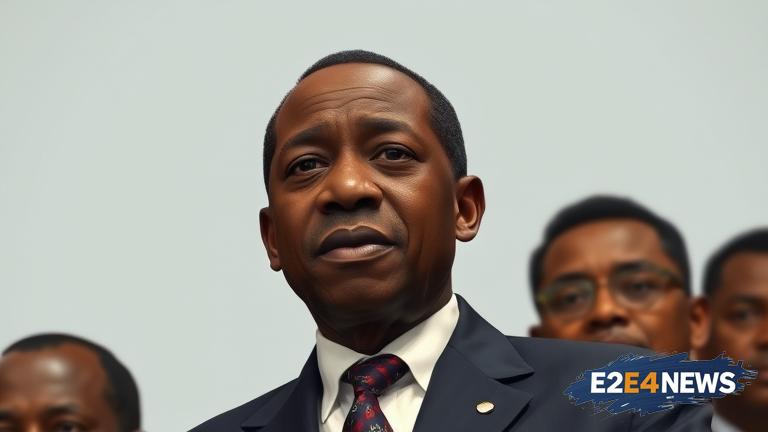In a shocking turn of events, a Ugandan university student has been sentenced to two months in prison for posting a TikTok clip that accused President Yoweri Museveni of murder. The student, whose name has not been disclosed, was found guilty of promoting sectarianism and violating the Computer Misuse Act. The incident has sparked widespread outrage and concerns over the state of freedom of speech in Uganda. The student’s arrest and subsequent jailing have been condemned by human rights activists and opposition leaders, who argue that the move is a clear attempt to silence dissenting voices. The TikTok clip in question allegedly accused President Museveni of being responsible for the death of a prominent Ugandan musician, which the government has denied. The student’s lawyer has vowed to appeal the sentence, arguing that the prosecution failed to provide sufficient evidence to support the charges. The case has highlighted the growing trend of online censorship in Uganda, where the government has been cracking down on social media users who criticize the president or the ruling party. In recent years, several Ugandans have been arrested and charged with cybercrime for posting content that is deemed critical of the government. The move has been seen as an attempt to intimidate and silence online activists and opposition supporters. The Ugandan government has defended its actions, arguing that it is necessary to maintain public order and prevent the spread of false information. However, human rights groups have argued that the move is a clear violation of the right to freedom of expression, which is enshrined in the Ugandan constitution. The case has also sparked concerns over the independence of the judiciary, with many arguing that the sentence was politically motivated. The student’s jailing has been seen as a warning to other social media users who dare to criticize the government, and has sparked fears of a growing culture of self-censorship in Uganda. Despite the risks, many Ugandans continue to use social media to express their opinions and criticize the government, with many arguing that it is a vital platform for holding those in power to account. The incident has also highlighted the need for greater protections for online activists and social media users, who are often vulnerable to harassment and intimidation. In recent years, there have been several high-profile cases of online activists being arrested and charged with cybercrime, which has had a chilling effect on freedom of expression in Uganda. The case has sparked widespread condemnation from human rights groups and opposition leaders, who argue that the sentence is a clear attempt to silence dissenting voices. The Ugandan government has been accused of using the law to intimidate and silence its critics, and the case has highlighted the need for greater protections for freedom of expression in the country. The student’s jailing has also sparked concerns over the impact on academic freedom, with many arguing that it is a clear attempt to intimidate and silence university students who dare to speak out against the government. The incident has sparked widespread outrage and condemnation, with many calling for the student’s release and an end to the crackdown on freedom of expression in Uganda.





